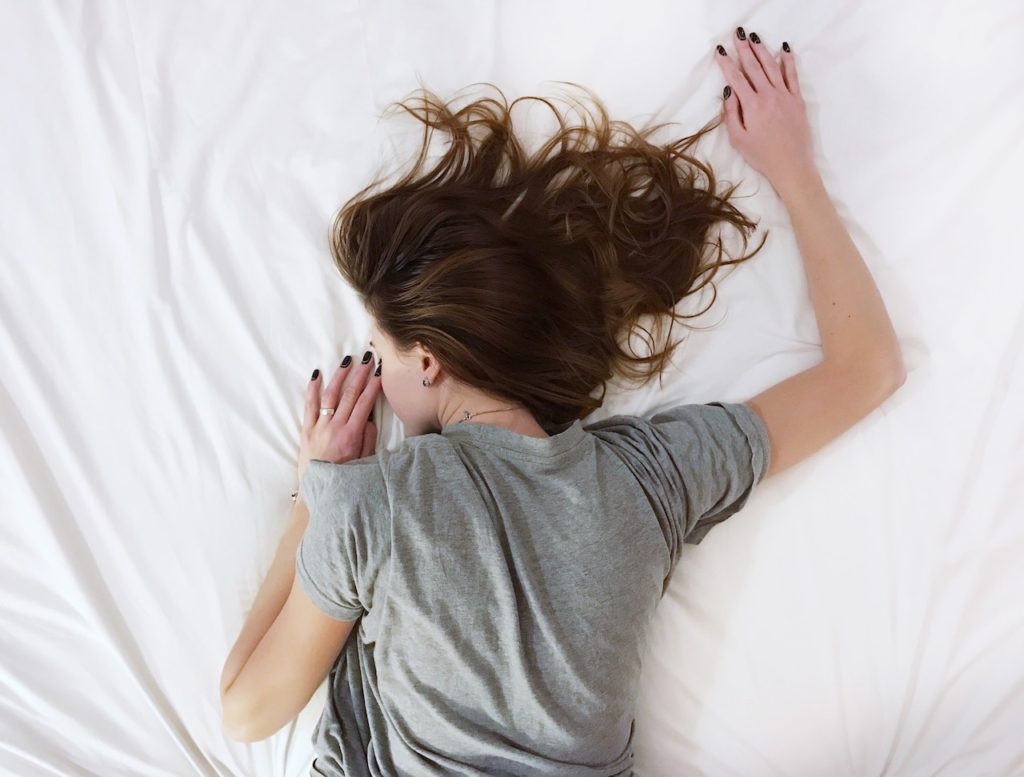
A good night’s sleep is undoubtedly essential for health and well-being. But there are still many misconceptions about sleep. For example, do some people need more rest than others? And can you really learn to function on less sleep?
While some people proudly claim they only need four hours of sleep each night, others wonder why their teenagers are always so tired in the morning.
Check out our top ten most common sleep myths, debunked, and the truth behind them.
1. Some lucky people only need five hours of sleep (or less) per night.
You might see a friend wake up bright up and bushy-tailed after boasting they’ve only had five hours of sleep. But this doesn’t necessarily mean they’re lucky. Although in the short term people can survive on only five hours of sleep, in the long term, people who average less than seven hours a night can see a negative impact on their mental health, immune system, and metabolism.
2. It doesn’t matter when you sleep, only for how long.
The American Psychological Association has explained that sleeping at night is essential for maintaining your body’s natural sleep cycle, or circadian rhythm. Circadian rhythms are part of a natural cycle conducted by your body that responds to light and dark in your external environment.
This means that if you work night shifts and still feel fatigued after eight hours, it’s because your circadian rhythm has been disrupted by your sleeping during daylight hours.
3. The more sleep you get, the better.
Adults that frequently sleep for extended periods aren’t necessarily healthier than their eight-hours counterparts.
Sleeping for excessive periods of time may be an indicator of an undiagnosed condition, as you usually need extra sleep if your body is using energy to fight an illness. However, it is natural for children or teenagers to sleep for longer due to their ongoing growth and mental development.
4. Being able to sleep anytime, anywhere is a good thing.
We all know that person who’s able to fall asleep anywhere. We might even be jealous of their sleeping superpower. But falling asleep on public transport, in the daytime, or anywhere outside of your regular hours can be a sign of a sleep deficit.
You might be losing out on your regular night’s sleep or experiencing sleep apnea, which could be preventing you from sleeping during normal hours and increasing your likelihood of falling asleep during the day.
5. A warmer room helps you sleep better than a cold one.
A room that’s too warm can actually adversely affect your sleep. If your room is at a comfortably cool temperature (around 65–68 degrees), you are more likely to fall asleep. This is because your brain naturally sets your body’s thermostat to a cooler level when you are sleeping.
A room which is too hot will negatively impact your sleep, but so will one which is too cold. Try to get your temperature in that sweet middle range for optimal rest.
6. You can condition yourself to need less sleep.
Many things just take practice and time to get used to, but a lack of sleep is not one of those things. For better or worse, you’re biologically hardwired to need a good quality night’s sleep. So trying to force your body to adapt to less sleep will ultimately be an unsuccessful task that will leave you chronically sleep-deprived.
You may feel like you’re adjusting to getting less sleep, when really you’re just adjusting to functioning at a lower level. Your body will not have the same amount of energy and capacities when you’re depriving yourself of sleep.
7. If you’re drowsy, driving with the windows down and loud music is a safe way to keep yourself awake.
If you’re feeling sleepy when you’re driving, the best way to help yourself is to pull over safely and take a nap. While caffeine can help, it takes around thirty minutes to kick in and will leave the system far more quickly than a good night’s sleep.
Loud music and open windows can be dangerous and distract already tired drivers from the road. They treat a symptom rather than the cause of your tiredness, so even if you’re following all the so-called “tips” to keep yourself awake, you’re still driving drowsy.
8. Teenagers who fall asleep in class are either lazy or stay up too late.
Teenagers are still developing physically and mentally, so they need on average an additional one to two hours of sleep compared to adults. A teenager’s body clock also differs slightly from an adult’s, meaning they’re often biologically set to be awake into the night and sleep in later.
This difference in adolescents’ circadian rhythms has even made schools consider setting later start times to help teenagers get enough sleep. In short, if your teenager is falling asleep during school, it might be because they stayed up too late—but a later sleep schedule compared to an adult’s is a normal, biological tendency.
Here’s to a Good Night’s Sleep
There are a myriad of things that contribute to your ability to sleep at night, but one of those things is your comfort. With Tochta’s premium and proven quality and our custom mattress builder allowing you to choose any size and shape that fits your space, you get a mattress that gets you the best possible sleep and associated health benefits.
Here’s wishing everyone a good night’s sleep!




